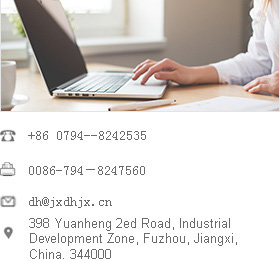
- DHP419 Series of PP Yarn Stretching Machine
- DH419D Series PP FDY Multifilament Spinning Machine HT
- DHP418 Series PP FDY Multifilament Spinning Machine MT
- DHKV 1235-12 Polyester POY Spinning Line
- DHPE Ultra High Molecular Weight Polyethylene Yarn Spinning Equipment
- DHTA Aramid 1414 Yarn Spinning Line


In mid-September, the Trump administration shelved a broad import ban on cotton and tomato products from Xinjiang, China, and announced a smaller ban on products from five specific entities (including those processed by Xinjiang Junggar Cotton Co., Ltd.). cotton).
Although it is only temporarily shelved, another "boot" may still fall, but it is still a good result for the majority of Chinese export-oriented enterprises, contract processing plants, cotton processing enterprises and Xinjiang cotton farmers (with Bytedance, Oracle, Wal-Mart reached a principled consensus on the “California on the Cloud” plan and obtained Trump’s “in principle” agreement. The ending is somewhat reminiscent), at least for Chinese companies to gain time to breathe, adjust, and actively respond.
Several international cotton traders predict that the Trump administration’s postponement of the extensive import ban on cotton and tomato products in Xinjiang may be based on the following two considerations: First, because the scope is too wide, once the ban is implemented, it is likely to trigger the Chinese government’s Vigorously counteracting the political “capital” that Trump is proud of—the first phase of the Sino-US trade agreement may face implementation risks; second, the US genetic traceability technology is not very mature or the cost of use is high, and there is still no way to avoid it. Chinese companies adopt guerrilla tactics such as roundabouts and changing "magazines." Therefore, the White House may also be "waiting for time, looking for opportunities, and finding an entry point." The ban on cotton, yarn, and cotton textiles in Xinjiang is only shelved rather than revoked, but it does give China and the United States an opportunity to prepare, observe, and negotiate.
Although Trump and the White House have suspended their extensive import ban on cotton and tomato products in Xinjiang, some clothing brand companies, buyers and retailers in the United States, Europe and even Japan have jumped out (whether there is a U.S. government It’s hard to judge by acquiescence or even “stand on their feet”) and require Chinese suppliers and contract processing companies to prohibit the use of Xinjiang cotton, yarn, and cotton products, including Adi, Nike, H&M, Crocodile, ZARA, etc. Put down the "Ban Shao Niang" and other brands, and recently H&M announced not only to terminate business with Huafu, but also to investigate all Chinese suppliers, determined to be the "pawn" of Trump and the US government in sanctions on cotton products in Xinjiang, China At a glance.
Textile and apparel companies in some coastal areas such as Jiangsu, Zhejiang, Guangdong, and Shandong said that although the U.S. government has “outrageously” shelved the import ban on Xinjiang cotton, yarn, cotton products, etc., it secretly encouraged and wooed European and American countries. In the name of "individual enterprises", brand enterprises and retailers require suppliers and processing factories to ban Xinjiang cotton products (not officially decided by the White House), so that the Chinese government and export-oriented enterprises "dumb loss." As the November U.S. presidential election approaches, the U.S. government and U.S. and European companies continue to expand the scope of banned cotton in Xinjiang, and the probability of dark arrows hurting people has only risen. To the lowest.







